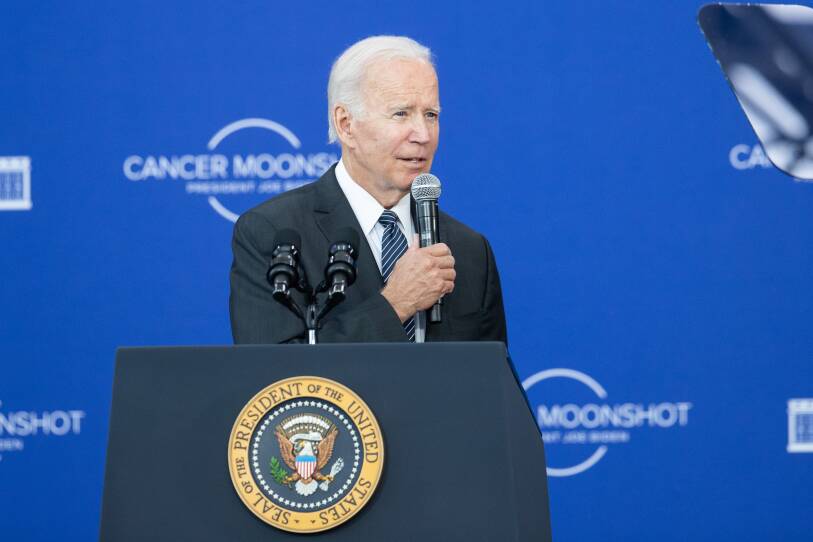Environmental advocates and elected officials gathered Monday in Woburn to celebrate the Environmental Protection Agency’s proposed ban on commercial and consumer use of trichloroethylene, or TCE.
TCE is a highly toxic chemical commonly found in cleaning solutions and de-greasers. It’s linked to several health conditions, including cancer and harm to the reproductive system.
Anne Anderson, a Woburn resident, has been fighting for the ban for decades after her son, Jimmy, was diagnosed with cancer in the 1980s. She suspected that the city’s drinking water was the cause of his cancer — and, years later, the state shut down their wells, which were found to be contaminated with TCE. Their story was memorialized in the book and film “A Civil Action.”
Massachusetts Sen. Ed Markey spoke at the press conference to laud the EPA’s move.
“Today, we remember Jimmy and all those kids who didn’t stand a chance against toxic chemical pollution,” Markey said. “We come together in resolution as we commit to banishing the toxic legacy of this chemical to the history books once and for all.”
Though the EPA banned the use of TCE in food and medicine in the 1980s, the substance can still be found in refrigerants and dry cleaning and has contaminated drinking water from underground storage leaks.

The EPA’s assistant administrator for chemical safety and pollution prevention, Michal Freedhoff, says a complete, sweeping ban is necessary to protect families, workers and communities from the dangerous chemical.
“The science is loud and clear: This chemical is so dangerous, even in small amounts, that we don’t think any uses can safely continue,” Freedhoff said. “We can’t turn back the wheels of time and reverse the chemical safety tragedies in this country, but with [the EPA’s] rule, we’re writing what I hope will be the final chapter in the TCE story, once and for all.”
The EPA has opened up 45 days of public comment on the rule.
Once implemented, the proposal would give most manufacturers one year to determine how best to phase out the chemical solution. Some — like NASA, the Department of Defense and electric vehicle battery manufacturers — would be granted several more years to phase out the substance.
Environmental activists like Maria Doa, senior director of chemicals policy at the Environmental Defense Fund, told GBH News this ruling is long overdue.
“TCE is so toxic and so harmful and should not be used at all, so I don’t think this is a surprise to anyone,” Doa said. “It’s very encouraging to see that most of the uses will be banned within a year.”
“The science is loud and clear: This chemical is so dangerous, even in small amounts, that we don’t think any uses can safely continue.”Michal Freedhoff, EPA’s assistant administrator for chemical safety and pollution prevention
Previous efforts to ban the substance have stalled before ultimately being withdrawn under former President Donald Trump.
The EPA’s proposal is part of a larger effort under President Joe Biden to end cancer, called the “Cancer Moonshot.”
EPA Deputy Administrator Janet McCabe says the agency is happy to play a part in Biden’s efforts.
“I am proud that the EPA has a unique role to play in the fight against cancer,” McCabe said. “Through our regulatory enforcement and voluntary programs, we can help or require the cancer-causing toxic chemicals are removed from our environment, or never put into the environment to begin with — literally preventing cancer from happening.”





